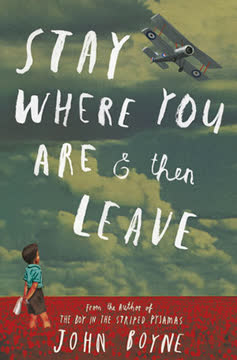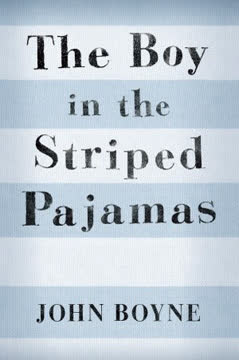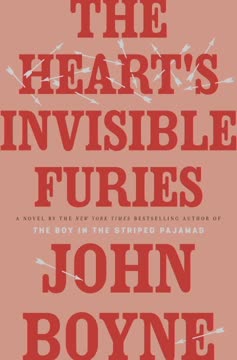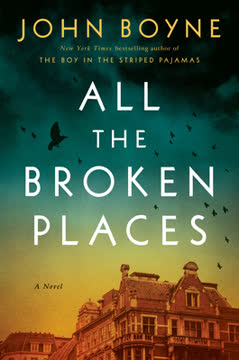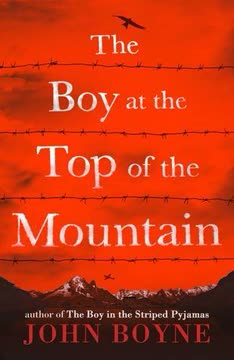Plot Summary
War Arrives on Birthday
Alfie Summerfield's fifth birthday coincides with the outbreak of World War I, forever linking his personal milestones to the world's upheaval. The party is somber, with neighbors anxious and his grandmother weeping, foreshadowing the war's intrusion into every aspect of life. Alfie's father, Georgie, is distracted and worried, and the adults' conversations are laced with dread and uncertainty. The war's beginning is not just a historical event but a rupture in the Summerfield family's sense of safety and normalcy, setting the stage for Alfie's coming-of-age in a world defined by absence, fear, and the need to grow up too soon.
Damley Road Divides
Damley Road, once a close-knit London street, fractures as the war intensifies. Suspicion and nationalism poison relationships, especially when Mr. Janáček, Alfie's best friend Kalena's father and a Czech immigrant, is targeted as a "foreigner." The Janáčeks' sweet shop is vandalized, and eventually, they are taken away as "persons of special interest." The community's unity dissolves into fear and prejudice, and Alfie witnesses the cost of war not just on the battlefield but in the hearts of ordinary people. The loss of Kalena and her father marks Alfie's first experience with injustice and the arbitrary cruelty of war.
Father's Sudden Departure
Despite Margie's pleas, Georgie enlists, swept up by the pressure to serve "King and Country." His departure is abrupt and traumatic, leaving Alfie and Margie to navigate a new reality. Letters from Georgie begin as cheerful but grow increasingly bleak, hinting at horrors he cannot share. Margie tries to shield Alfie from the truth, inventing stories about secret missions, but the absence is palpable. Alfie's longing for his father and confusion about the adult world's contradictions deepen, as he is forced to become the "man of the house" far too young.
Shoeshine Boy's Secret
With Margie overworked as a nurse and money scarce, Alfie secretly takes up work as a shoeshine boy at King's Cross Station, using Mr. Janáček's abandoned shoeshine box. He hides his earnings in Margie's purse, trying to help without her knowing. The station becomes Alfie's window into the adult world—he meets soldiers, hears stories, and witnesses the war's impact on everyone. His work is both a necessity and a way to assert agency in a world where children are expected to endure and adapt.
Letters from the Front
Georgie's letters, once a lifeline, become increasingly fragmented and disturbing, reflecting his mental unraveling. Margie censors the worst of them, but Alfie discovers the truth: his father is not on a secret mission but is suffering deeply. The letters reveal the psychological toll of trench warfare—mud, death, guilt, and the senselessness of violence. Alfie's understanding of war matures; he realizes that survival is not just about coming home alive, but about coming home whole.
The Janáčeks Disappear
The Janáčeks' forced removal devastates Alfie, who loses his best friend Kalena and a sense of belonging. Their house stands empty, a symbol of the war's power to erase lives and relationships. Alfie's theft of the shoeshine box is both an act of desperation and remembrance—a way to keep a piece of his friend and their shared past. The episode cements Alfie's distrust of authority and his awareness of how easily innocence can be destroyed.
Mother's Burdens Multiply
Margie's transformation from a warm, playful mother to a harried, exhausted nurse mirrors the war's effect on the home front. She juggles hospital shifts, laundry, and sewing to keep the family afloat, growing distant and irritable. Alfie feels her love but also her absence, and their roles blur as he takes on more responsibility. Margie's attempts to protect Alfie from the truth only deepen his resolve to uncover it, setting up a conflict between secrecy and honesty.
The Truth in a Name
While shining shoes, Alfie glimpses a hospital document listing his father's name—George Summerfield—at the East Suffolk & Ipswich Hospital. The revelation that Georgie is alive but institutionalized for "shell shock" (what we now call PTSD) is both a relief and a new source of anguish. Alfie realizes that the adults' lies were meant to protect him, but they have only left him more alone. The discovery propels him on a mission to find and rescue his father.
Hospital of Lost Men
Alfie's journey to the hospital exposes him to the hidden casualties of war: men broken in mind and spirit, not just body. The hospital is a place of suffering and neglect, where shell-shocked soldiers are misunderstood and mistreated. Alfie's search for Georgie is harrowing—he witnesses the dehumanization of patients and the inadequacy of medical understanding. When he finally finds his father, Georgie is unrecognizable, lost in a fog of trauma and confusion.
A Son's Secret Mission
Determined to save his father, Alfie hatches a plan to break Georgie out of the hospital. He enlists the reluctant help of Joe Patience, a neighbor and conscientious objector who has suffered for his pacifism. The escape is fraught with risk, but Alfie's love and stubbornness drive him forward. The act is both reckless and heroic—a child's attempt to reclaim agency in a world that has taken so much from him.
Breaking Out of Despair
Alfie and Georgie's escape is successful, but the return home is bittersweet. Georgie is fragile, haunted by memories and unable to function in the world he left behind. Alfie's hope that home will heal his father is tested as Georgie's condition worsens, and the family must confront the reality that love alone may not be enough. The community's reaction is mixed—some are supportive, others suspicious or judgmental.
Homecoming and Consequences
The truth of Georgie's condition comes out, and the family must navigate the stigma of mental illness and the scars of war. Margie, Granny Summerfield, and even Joe Patience rally to support Georgie, recognizing that healing requires honesty, patience, and collective effort. The war's end brings relief but also the challenge of rebuilding lives and relationships. Alfie learns that courage is not just about daring acts but about enduring, forgiving, and hoping.
The War's End
The armistice is announced, and Damley Road erupts in celebration. For Alfie and his family, the end of the war is both a victory and a reminder of all that has been lost. The return of the Janáčeks and the gradual healing of old wounds signal the possibility of renewal. The community, once divided, begins to mend, and Alfie's journey from innocence to experience is complete.
Healing and Moving Forward
Years later, Alfie's thirteenth birthday is marked by the return of old friends and the quiet resilience of his family. Georgie, though changed, has found a measure of peace, and Margie has discovered her calling as a nurse. The Janáčeks prepare to return to Prague, and Joe Patience finds acceptance. Alfie reflects on the meaning of his actions and the enduring power of love—the force that motivated his secret mission and sustained his family through the darkest times.
Characters
Alfie Summerfield
Alfie is the heart of the story—a sensitive, resourceful boy whose childhood is upended by war. His longing for his absent father and his determination to help his struggling mother drive him to take on adult responsibilities, from working as a shoeshine boy to orchestrating his father's escape from hospital. Alfie's psychological journey is marked by confusion, anger, and resilience; he is shaped by loss but refuses to be defined by it. His relationships—with his parents, friends, and neighbors—reveal his capacity for empathy and his struggle to make sense of a world that often seems senseless.
Georgie Summerfield
Georgie is a loving, gentle man whose enlistment is motivated by duty and social pressure. The horrors of trench warfare shatter his mind, leaving him with severe shell shock. His letters home chart his decline, and his eventual institutionalization is a source of shame and sorrow for the family. Georgie's journey is one of trauma and slow recovery; his relationship with Alfie is central, as the boy's love and persistence become a lifeline. Georgie embodies the hidden wounds of war and the challenges of reintegration.
Margie Summerfield
Margie is a portrait of wartime endurance—resourceful, loving, but increasingly worn down by the demands of survival. She works as a nurse, laundress, and seamstress, all while trying to shield Alfie from the worst realities. Her attempts at secrecy are well-intentioned but ultimately isolating. Margie's development is marked by her gradual acceptance of the truth and her willingness to seek help. Her love for Alfie and Georgie is unwavering, and her eventual openness is key to the family's healing.
Joe Patience
Joe is Georgie's oldest friend and a conscientious objector, ostracized and brutalized for his refusal to fight. His pacifism is rooted in personal trauma, and his experiences in prison leave him scarred but steadfast. Joe's relationship with the Summerfields is complex—he is both a source of support and a reminder of the costs of dissent. His eventual role in helping Alfie and Georgie signals the importance of solidarity and forgiveness.
Kalena Janáček
Kalena is Alfie's best friend, ambitious and imaginative, whose life is upended by xenophobia. Her forced removal with her father is a formative loss for Alfie, symbolizing the war's power to destroy innocence and community. Kalena's return after the war and her dreams of becoming prime minister reflect the resilience of hope and the possibility of change.
Mr. Janáček
Kalena's father, a Czech immigrant and sweet shop owner, is targeted as an enemy alien despite his long-standing ties to the community. His dignity and kindness stand in contrast to the fear and bigotry around him. His story is a reminder of the collateral damage of war and the importance of compassion.
Granny Summerfield
Alfie's grandmother is a source of both comfort and conflict—her bluntness and traditionalism are sometimes a barrier, but her love for her family is fierce. She represents the older generation's struggle to adapt to a changing world and the enduring bonds of kinship.
Old Bill Hemperton
Old Bill is a fixture on Damley Road, offering comic relief and a sense of continuity. His observations and interventions are often wise, and he serves as a bridge between the past and present.
Dr. Ridgewell
The hospital doctor who treats Georgie, Dr. Ridgewell is well-meaning but constrained by the era's limited understanding of mental health. His interactions with Alfie and the family highlight the challenges of treating invisible wounds and the need for empathy in medicine.
David Lloyd George
The prime minister, encountered by Alfie at King's Cross, represents the impersonal machinery of war and government. His brief, humanizing interaction with Alfie underscores the disconnect between policy and personal suffering.
Plot Devices
War as Catalyst for Change
The narrative uses the outbreak and progression of World War I as both backdrop and engine for character development. The war's reach is total, affecting not just soldiers but families, friendships, and communities. It accelerates Alfie's maturation and exposes the fault lines of society.
Epistolary Fragments
Georgie's letters serve as a narrative device to chart his psychological decline and to reveal the limits of communication. The shift from cheerful updates to incoherent ramblings mirrors the breakdown of the self under extreme stress, and the censorship of these letters by Margie highlights the tension between protection and truth.
Child's Perspective
The story is filtered through Alfie's eyes, allowing the reader to experience the confusion, fear, and determination of a child grappling with adult problems. This perspective heightens the emotional impact and underscores the tragedy of lost innocence.
Symbolic Objects
Objects like the shoeshine box, the apple drops, and the family photograph serve as tangible links to lost relationships and happier times. They are tokens of memory, love, and the desire to restore what has been broken.
Foreshadowing and Irony
The narrative is rich in foreshadowing—Granny's repeated "we're finished," the empty house at number six, the recurring phrase "stay where you are and then leave." Irony abounds, especially in the fate of Joe Patience and the shifting meanings of bravery and cowardice.
Community as Microcosm
The street's transformation from unity to division and back again mirrors the broader societal changes wrought by war. The fates of its residents encapsulate the era's struggles with identity, loyalty, and forgiveness.
Analysis
"Stay Where You Are and Then Leave" is a poignant exploration of the hidden costs of war, especially on those left behind. Through Alfie's eyes, John Boyne examines the psychological wounds that linger long after the guns fall silent—trauma, prejudice, and the struggle to rebuild. The novel critiques the romanticization of war and the failure to recognize mental illness, while celebrating the quiet heroism of ordinary people. Its lessons are timeless: that love, honesty, and community are essential for healing; that children bear burdens they should not have to; and that the true test of courage is not in battle, but in the willingness to care for the broken and to hope for a better future. In an age still marked by conflict and displacement, Boyne's story remains a powerful call for empathy and understanding.
Last updated:
FAQ
0. Synopsis & Basic Details
What is Stay Where You Are and Then Leave about?
- A Child's War: The story follows nine-year-old Alfie Summerfield in London during World War I, whose world is turned upside down when his father, Georgie, enlists in the army. Alfie grapples with his father's absence and his mother's increasing burdens.
- Secret Mission of Love: Believing his father is on a "secret mission" as his mother claims, Alfie embarks on his own clandestine quest, shining shoes at King's Cross Station to help his family and eventually uncovering a hidden truth about Georgie's whereabouts.
- Journey to Understanding: Alfie's determination leads him to a military hospital, where he confronts the devastating psychological impact of war on soldiers, particularly "shell shock," and attempts to bring his father home, forcing his family and community to face the war's true, unseen costs.
Why should I read Stay Where You Are and Then Leave?
- Unique Child's Perspective: John Boyne masterfully narrates the harrowing realities of WWI through the innocent yet increasingly perceptive eyes of a nine-year-old, offering a fresh and deeply emotional lens on a well-trodden historical period.
- Profound Emotional Depth: The novel delves into themes of love, loss, resilience, and the hidden psychological wounds of war, making it a poignant and thought-provoking read that resonates long after the final page.
- Historical Insight & Empathy: Beyond the personal story, it provides a vivid portrayal of the British home front, the stigma of shell shock, and the internment of "enemy aliens," fostering a deeper understanding and empathy for those affected by conflict.
What is the background of Stay Where You Are and Then Leave?
- War as Catalyst for Change: The story is set against the backdrop of World War I (1914-1918), specifically focusing on the home front in London and the psychological impact of trench warfare, known as "shell shock" (now PTSD).
- Internment of "Enemy Aliens": A key historical element is the internment of individuals from countries at war with Britain, even those who had lived in England for years, exemplified by the Janáček family, who are Czech but mistaken for German or Austro-Hungarian.
- Social & Economic Shifts: The narrative highlights the societal changes, such as conscription, the increased role of women in the workforce (Margie as a Queen's Nurse), and the economic hardships faced by ordinary families, forcing children like Alfie into labor.
What are the most memorable quotes in Stay Where You Are and Then Leave?
- "Stay where you are and then leave.": This recurring, paradoxical phrase, initially a sergeant's command to soldiers in the trenches, becomes a haunting symbol of Georgie's trauma and the psychological trap of war, encapsulating the inability to move forward while being compelled to depart.
- "For the best reason in the world. For love.": Uttered by Mr. Janáček explaining his move to London and later by a nurse describing a wife's devotion, this phrase underscores the enduring power of love as a driving force, contrasting with the destructive forces of war and prejudice.
- "The war will never come to an end. It's going to go on forever.": Alfie's desperate cry reflects the profound sense of hopelessness and endlessness that permeated the lives of those on the home front, particularly children, who had known little else but conflict.
What writing style, narrative choices, and literary techniques does John Boyne use?
- Simple, Evocative Prose: Boyne employs a straightforward, accessible writing style, often reflecting Alfie's childlike perspective, which makes the profound emotional and historical themes digestible and deeply impactful for readers of all ages.
- Child's Perspective: The story is primarily told through Alfie's eyes, allowing readers to experience the confusion, fear, and gradual understanding of war's complexities as a child would, enhancing empathy and highlighting the loss of innocence.
- Recurring Motifs and Symbolism: Boyne skillfully uses recurring elements like the shoeshine box, Robinson Crusoe, the phrase "over by Christmas," and the "Stay where you are and then leave" command to weave a rich tapestry of meaning, foreshadowing, and thematic depth throughout the narrative.
1. Hidden Details & Subtle Connections
What are some minor details that add significant meaning?
- "Holzknecht" on Shoeshine Box: The German word "Holzknecht" (meaning "woodcutter" or "lumberjack") and the eagle emblem carved into Mr. Janáček's shoeshine box subtly foreshadow his internment, ironically linking him to a German identity despite being Czech, highlighting the arbitrary nature of wartime prejudice.
- Mr. Asquith, the Horse's Name: Alfie names Georgie's milk horse "Mr. Asquith" after the Prime Minister, a seemingly innocent detail that connects the mundane, comforting routine of the milk float to the highest echelons of wartime leadership, symbolizing how the war permeated every aspect of life, even the most innocent.
- Hospital's Manicured Lawns: The description of the hospital grounds having "carefully tended" lawns but "no flowers anywhere in sight" symbolizes the superficial order and attempts at normalcy that mask the deep, internal suffering of the shell-shocked soldiers within, reflecting a society trying to maintain appearances amidst profound trauma.
What are some subtle foreshadowing and callbacks?
- Granny's "We're Finished": Granny Summerfield's repeated lament, "We're finished, we're all finished," from Alfie's fifth birthday, subtly foreshadows not just the war's devastating impact on society, but specifically the breakdown of the Summerfield family unit and Georgie's psychological collapse.
- Marian's Age Observation: Marian Bancroft's comment that "it's the nineteen-year-olds who have difficulty turning twenty" on the train ride to Ipswich, subtly foreshadows the immense loss of young life in the war and the psychological toll that prevents many from truly living beyond their wartime experiences.
- Joe Patience's Childhood Trauma: Joe's revelation of his abusive father and Granny Summerfield's protection of him provides a crucial callback, explaining his deep-seated pacifism and why he "won't hurt people," transforming his "conchie" label from cowardice to a principled stand against violence.
What are some unexpected character connections?
- Mr. Janáček and Marian Bancroft's Shared Phrase: Both Mr. Janáček and Marian Bancroft use the phrase "For the best reason in the world. For love," to explain significant life choices (moving to London, visiting a loved one in hospital). This unexpected echo connects the immigrant's journey and the nurse's compassion, highlighting love as a universal, powerful motivator against a backdrop of war and prejudice.
- Joe Patience and Granny Summerfield's Hidden History: Despite Granny Summerfield's current disdain for Joe as a "conchie," their shared past reveals a deep, protective bond where she shielded him from his abusive father. This hidden history resurfaces, allowing for a moment of reconciliation and understanding that transcends wartime divisions.
- Alfie's Connection to Dr. Ridgewell: Alfie's repeated encounters with Dr. Ridgewell, first as a shoeshine boy and later as the doctor treating his father, create an ironic connection. Dr. Ridgewell, initially dismissive of Alfie, unknowingly becomes a key figure in Alfie's quest, highlighting the child's agency and the doctor's limited perspective on the "madness" he treats.
Who are the most significant supporting characters?
- Joe Patience: The Moral Compass: Joe, Georgie's oldest friend and a conscientious objector, serves as a crucial moral counterpoint to the prevailing wartime jingoism. His personal history of trauma informs his pacifism, and his eventual, reluctant aid to Alfie underscores the importance of loyalty and individual conscience over societal pressure.
- Marian Bancroft: The Enlightened Stranger: Marian, the nurse Alfie meets on the train, is pivotal in introducing him to the concept of "shell shock" and guiding him to the hospital. Her open-mindedness and willingness to engage with Alfie's "secret mission" provide a stark contrast to the adults who dismiss or lie to him, representing a more compassionate and informed perspective on the war's hidden wounds.
- Mr. Janáček: The Innocent Victim: Kalena's father, the kind sweet shop owner, symbolizes the innocent victims of wartime xenophobia. His forced internment and the subsequent abandonment of his shop highlight the destructive power of prejudice and the fragility of community bonds, leaving a lasting impact on Alfie's understanding of injustice.
2. Psychological, Emotional, & Relational Analysis
What are some unspoken motivations of the characters?
- Margie's Protective Secrecy: Margie's insistence on Georgie's "secret mission" and her hiding of his increasingly disturbing letters are driven by a desperate need to protect Alfie's innocence and maintain a semblance of hope and stability for her son, even at the cost of honesty.
- Georgie's Initial Enlistment: Beyond "King and Country," Georgie's decision to volunteer likely stems from a desire for purpose, a sense of duty, and perhaps a naive belief in the war's quick resolution, seeking to prove his worth as a man and provider in a rapidly changing world.
- Alfie's Quest for Control: Alfie's relentless pursuit of his father, from shining shoes to orchestrating his escape, is motivated not just by love, but by a deep-seated need to regain control in a world where adults have failed him, to fix what has been broken, and to restore his lost sense of security.
What psychological complexities do the characters exhibit?
- Georgie's Fragmented Identity: Georgie's shell shock manifests as a fragmented identity, where he oscillates between moments of lucidity and deep confusion, reliving trench horrors and struggling to recognize his own family, illustrating the profound psychological toll of sustained trauma.
- Alfie's Premature Maturation: Alfie exhibits a complex blend of childlike naivety and adult-like determination. His coping mechanisms, such as immersing himself in Robinson Crusoe (a story of self-reliance and isolation) and taking on the role of provider, reveal a child forced to navigate immense emotional burdens.
- Joe Patience's Moral Injury: Joe's pacifism, rooted in his traumatic childhood, leads to a "moral injury" where he suffers physical and social abuse for refusing to participate in state-sanctioned violence, highlighting the psychological cost of adhering to one's principles against societal pressure.
What are the major emotional turning points?
- Alfie's Discovery of Georgie's Hospitalization: The moment Alfie sees Georgie's name on the hospital document is a profound emotional turning point, shattering his mother's protective lies and transforming his passive longing into an active, desperate mission to find and save his father.
- Margie's Slap and Confession: Margie's uncharacteristic slap to Alfie's face, followed by her immediate remorse and partial confession about Georgie's condition, marks her emotional breaking point, revealing the immense stress and fear she carries and the fragility of her carefully constructed facade.
- Georgie's Recognition via Apple Drop: Georgie's moment of recognition, triggered by Alfie's offering of an apple drop—a symbol of their pre-war routine and love—is a deeply emotional breakthrough, signifying the enduring power of shared memories and familial connection to pierce through the fog of shell shock.
How do relationship dynamics evolve?
- Alfie and Margie: From Dependence to Mutual Support: Their relationship shifts from traditional mother-son dependence to a complex dynamic where Alfie secretly supports Margie financially, and Margie eventually confides in him, fostering a deeper, albeit painful, mutual understanding and respect.
- Alfie and Georgie: From Idolization to Caregiver: Alfie's initial idolization of his father transforms into a role of caregiver and protector, as he literally leads his traumatized father home. This reversal of roles forces Alfie into premature adulthood but ultimately strengthens their bond through shared vulnerability and love.
- Damley Road Community: From Division to Reconciliation: The war initially fractures the close-knit Damley Road community, leading to suspicion and ostracization (e.g., Janáčeks, Joe Patience). However, Georgie's return and the war's end catalyze a gradual process of reconciliation, as neighbors like Granny Summerfield and Joe Patience find common ground in shared humanity and support.
4. Interpretation & Debate
Which parts of the story remain ambiguous or open-ended?
- Alfie's Long-Term Emotional Scars: While the ending shows Alfie and Georgie in a "new type of normal," Alfie's final inability to articulate "love" as his motivation, instead shrugging, leaves the long-term psychological impact of his wartime experiences and premature responsibilities open-ended, suggesting lingering, unspoken trauma.
- The Janáčeks' Future in Prague: The Janáčeks' decision to leave England for Prague, stating "If I never see England again, it will be too soon," leaves their future ambiguous. While they seek safety, it questions whether they truly find belonging and healing, or if the scars of xenophobia are too deep for full recovery.
- The Extent of Georgie's Recovery: Although Georgie is back on the milk float and "fine these days," the narrative acknowledges he "still have nightmares." This ambiguity suggests that while he has achieved a functional recovery, the profound wounds of shell shock may never fully heal, leaving a lasting mark on him and his family.
What are some debatable, controversial scenes or moments in Stay Where You Are and Then Leave?
- Alfie's "Theft" of the Shoeshine Box: Alfie's decision to break into the Janáčeks' empty house and take the shoeshine box, though framed as a desperate act to help his family, raises ethical questions about property and desperation, prompting readers to debate whether his actions are justified or a reflection of the moral compromises forced by war.
- Margie's Lies About Georgie's "Secret Mission": Margie's sustained deception about Georgie's condition, telling Alfie he's on a "secret mission," is debatable. While intended to protect her son, it ultimately isolates Alfie and delays his understanding of his father's true suffering, sparking discussion on the ethics of shielding children from harsh realities.
- Joe Patience's Initial Refusal to Help Alfie: Joe's initial reluctance to help Alfie break Georgie out of the hospital, despite his deep friendship with Georgie, can be seen as controversial. It forces readers to consider the line between principled caution and perceived inaction, especially given Joe's own history of suffering for his beliefs.
Stay Where You Are and Then Leave Ending Explained: How It Ends & What It Means
- A New Normal, Not a Perfect Cure: The novel concludes four years after the war, with Alfie celebrating his thirteenth birthday. Georgie has returned to his milkman job, and while he still experiences nightmares, he is functional and present. This signifies that healing from profound trauma is a long, ongoing process, resulting in a "new type of normal" rather than a complete return to the past.
- Love as the Unspoken Motivator: When Georgie asks Alfie why he went to such trouble to save him, Alfie shrugs, unable to articulate "For love." This ending highlights that while love was the driving force behind Alfie's actions, the trauma and the weight of his experiences make it difficult for him to express such a simple, profound emotion, underscoring the lasting, complex psychological impact of the war on a child.
- Community as Microcosm and Lingering Scars:
Review Summary
Stay Where You Are and Then Leave is a poignant World War I story told through the eyes of a young boy named Alfie. The book receives praise for its portrayal of war's impact on families, exploration of shell shock, and well-developed characters. Readers appreciate Boyne's writing style and ability to address complex themes for younger audiences. While some find the pacing rushed and the ending too convenient, many consider it a touching and educational read that effectively balances humor and tragedy.
Download PDF
Download EPUB
.epub digital book format is ideal for reading ebooks on phones, tablets, and e-readers.
